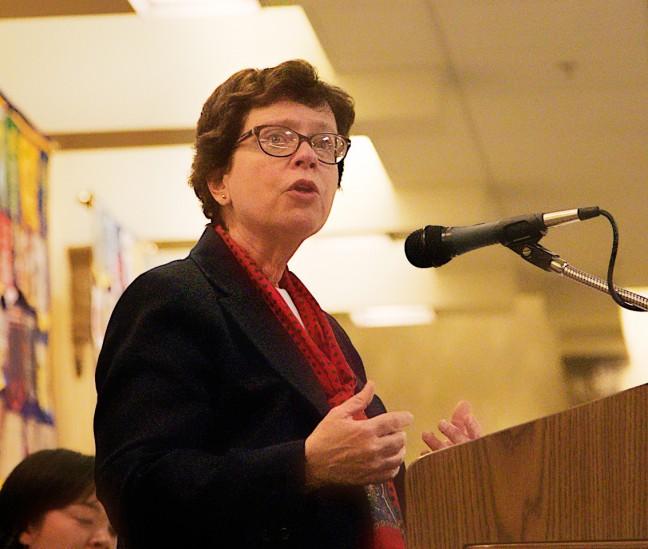University of Wisconsin out-of-state and some professional students could see substantial tuition increases if the UW System Board of Regents approves a proposal to hike tuition by the end of this week.
The board is set to hold what could be its last meeting before Gov. Scott Walker’s 2015-17 budget is passed this summer, although it might include significant changes from the state Legislature.
The regents’ finance committee is set to vote on a proposal from nine UW campuses Thursday to raise tuition for out-of-state, international and some professional students, which the full Board of Regents would need to go along with in its Friday meeting.
UW-Madison is asking to raise tuition for these students by $10,000 over the next four years. International students would see a larger increase, raising their tuition $11,000 over four years.
In-state students currently pay $10,410, while out-of-state students pay $26,660.
“These tuition increases are very important as a way to close the estimated structural deficit at UW-Madison, but they solve only part of the problem and must be combined with budget cuts and other measures,” UW-Madison officials wrote in their proposal to the regents.
Increasing out-of-state tuition, they added, will help keep costs down for in-state students, as it would bring in more revenue and help subsidize in-state students.
UW-Madison officials wrote their proposal would set out-of-state tuition and tuition for some graduate programs “at a market rate,” which UW-Madison Chancellor Rebecca Blank advocated for even before Walker proposed the current state budget cuts.
Walker’s biennial budget proposal includes a two-year tuition freeze for in-state UW System students that the Legislature will likely pass this summer, but this freeze would not apply to out-of-state students or graduate students.
UW-Madison officials also proposed that in-state students shouldn’t see tuition hikes.
Noel Radomski, the director of the Wisconsin Center for the Advancement of Postsecondary Education, said he is concerned about the UW System’s ability to attract nonresident students given how large those tuition increases would be.
This decreased enrollment from out-of-state students could render the revenue projections UW System officials are using inaccurate, he said.
Increases like this also present questions about the type of out-of-state students that will come to UW-Madison, Radomski said, with highly-qualified students potentially going to other public research universities.
“It’s likely that you’ll see less qualified nonresident students on the UW-Madison campus,” Radomski said.
Out-of-state students with lower incomes might also choose to go elsewhere, he added.
Associated Students of Madison Chair Genevieve Carter said in a statement that the increase in out-of-state tuition creates a tuition-dependent funding model.
“Increasing nonresident undergraduate tuition by $10,000 over the next four years is ultimately making college less affordable and accessible to all students,” Carter said. “These requested raises would also most likely lead to a spike in-state tuition increases at the conclusion of the current freeze.”
Carter also said students were not made aware of the decision to increase tuition and have largely been kept out of the decision-making process.
“If our administrators are going to place this increased burden on students, they need to engage directly with the students who will be paying more soon enough for students to determine whether Wisconsin is still a reasonable financial option for them and their families,” Carter said.













